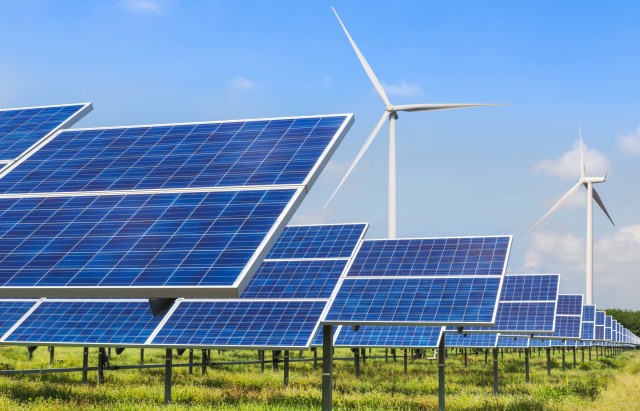Delays in signing power sale agreements (PSAs) are impacting the growth of renewable energy business in India, according to the Institute for Energy Economics and Financial Analysis (IEEFA) and JMK Research.
State-owned distribution companies (discoms) are yet to sign PSAs for 19GW of renewable energy capacity tendered by Solar Energy Corporation of India (SECI). Manufacturing-linked solar projects account for the majority (63 percent) of this capacity.
“This situation is having an adverse impact on the morale of project developers and investors and is slowing overall progress on renewable energy installation,” says co-author Vibhuti Garg, IEEFA Energy Economist, Lead India.
India government has a renewable energy target of 175 gigawatts (GW) by 2022.
Developers with SECI-tendered projects in their pipelines awaiting PSAs include Adani, Azure Power, ReNew Power and Greenko, which together form 78 percent of the total capacity in limbo, according to the note.
On average, 37 percent of the entire (installed and pipeline) project portfolios of these prominent developers is SECI-tendered projects with non-executed PSAs.
Drop in solar tariffs, driven by declining solar module prices, is the main reason for the discoms’ reluctance to sign PSAs – and in a few cases attempts to renegotiate or renege on wind and solar power purchase contracts.
“In 2020 we saw solar tariffs hit a record low of Rs1.99/kWh. Discoms are anticipating that solar module prices will decline further, leading to a reduction in future solar auction tariffs, so they are delaying signing PSAs at higher prices,” says co-author Jyoti Gulia, founder JMK Research.
“However, with electricity demand now picking up and the imposition of 40 percent basic customs duty on solar modules, tariffs will be unlikely to fall further in the near-term.”
The Ministry of Power’s Bill also proposes setting up a body to enforce contracts between generating, distribution or transmission companies.
Measures to persuade discoms to sign PSAs include setting a PSA signing deadline for all renewable tenders, requiring all discoms to devise long-term plans estimating the amount of renewable energy capacity to be integrated into their power mixes each year, and SECI seeking assurances from discoms on purchase of power before planning auctions.
The report suggest evaluating the option of ‘tariff pooling’, where a weighted average is taken from tariffs discovered in SECI auctions over six months, to eliminate the advantage gained by discoms that secure PSAs at relatively low tariffs.

